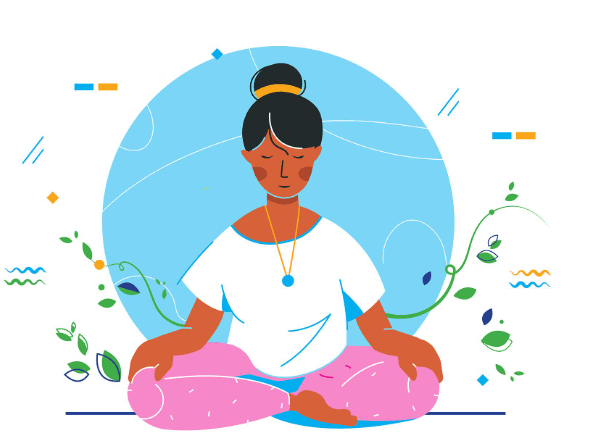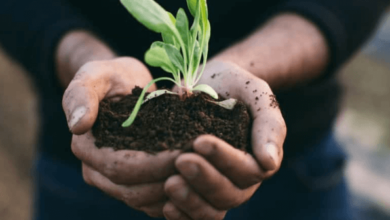Mindful Living: The Art of Being Present in a Busy World

In an era characterized by constant notifications, packed schedules, and the relentless pursuit of productivity, mindfulness has emerged as a transformative practice. Mindful living, the art of being fully present in each moment, offers a way to navigate life’s demands with clarity, peace, and intention. It encourages individuals to embrace the present rather than dwell on the past or worry about the future. This approach not only enhances mental well-being but also deepens relationships, fosters gratitude, and cultivates a greater sense of purpose.
Understanding Mindful Living
Mindful living is about more than just meditation or occasional moments of calm. It is a lifestyle that integrates mindfulness into everyday activities, encouraging awareness of thoughts, feelings, and surroundings. At its core, mindfulness involves paying attention to the present moment without judgment or distraction. It is rooted in ancient traditions, such as Buddhism, but has gained widespread popularity as a secular practice for managing stress and improving overall well-being.
The Benefits of Mindful Living
Improved Mental Health
Mindful living reduces stress and anxiety by helping individuals focus on the present rather than becoming overwhelmed by negative thoughts or future uncertainties. It promotes emotional regulation and resilience, providing tools to cope with life’s challenges effectively.
Enhanced Focus and Productivity
By fostering a greater sense of focus, mindfulness allows individuals to concentrate on tasks without being pulled in multiple directions. This improves productivity and decision-making while reducing the mental fatigue that comes with multitasking.
Stronger Relationships
Mindful living encourages active listening and empathy, strengthening connections with others. Being fully present in conversations and interactions deepens understanding and creates meaningful bonds.
Physical Health Benefits
Mindfulness practices, such as deep breathing and relaxation techniques, lower blood pressure, improve sleep quality, and reduce symptoms of chronic illnesses like pain and inflammation.
Increased Gratitude and Joy
Mindful living encourages appreciation for simple pleasures and the beauty of everyday life. This practice cultivates a sense of gratitude and contentment, contributing to overall happiness.
Practices for Embracing Mindful Living
Mindful Breathing
One of the simplest ways to practice mindfulness is through breathing. Focusing on the inhale and exhale anchors the mind and calms the nervous system. Even a few minutes of mindful breathing can bring clarity and reduce stress.
Meditation
Meditation is a cornerstone of mindfulness. Practices like guided meditation, body scans, or loving-kindness meditation help individuals develop awareness and compassion. Starting with short sessions and gradually increasing the duration makes meditation accessible for beginners.
Mindful Eating
Mindful eating involves savoring each bite, paying attention to flavors, textures, and the act of nourishment. This practice helps individuals develop a healthier relationship with food and promotes better digestion.
Gratitude Journaling
Writing down things you are grateful for each day fosters a mindset of appreciation. This practice shifts focus from what is lacking to what is abundant in life.
Digital Detox
Taking breaks from technology reduces distractions and encourages mindfulness. Setting aside time to disconnect from devices helps individuals engage fully in their surroundings and relationships.
Walking Meditation
Mindful walking combines movement with awareness. Focusing on each step, the sensation of the ground beneath your feet, and the rhythm of your breath transforms a routine activity into a meditative experience.
Incorporating Mindfulness into Daily Life
Start Small
Mindful living doesn’t require major changes to your routine. Begin with small practices, such as pausing to take three deep breaths before starting a task or setting aside five minutes each morning for meditation.
Be Intentional
Bring intention to everyday activities, whether it’s drinking a cup of tea, washing dishes, or talking to a friend. Focus on the task at hand rather than letting your mind wander.
Practice Non-Judgment
Mindful living involves observing thoughts and emotions without labeling them as good or bad. This practice helps reduce self-criticism and fosters a more compassionate mindset.
Set Boundaries
Creating boundaries around work, social commitments, and technology use helps prioritize what truly matters. Setting aside time for rest and self-care is essential for mindful living.
Celebrate Progress
Mindful living is a journey, not a destination. Celebrate small successes and acknowledge the effort you put into cultivating mindfulness, even on challenging days.
Overcoming Challenges in Mindful Living
Adopting a mindful lifestyle can be challenging in a world that often prioritizes speed and efficiency. It’s common to struggle with distractions, impatience, or self-doubt when beginning mindfulness practices. The key is to approach mindfulness with curiosity and kindness, recognizing that it’s a skill that develops over time. Regular practice, even in small doses, builds the foundation for long-term benefits.
It’s also helpful to find a community or resources to support your mindfulness journey. Joining a meditation group, attending workshops, or using mindfulness apps like Headspace or Calm can provide guidance and motivation.
The Role of Mindful Living in a Busy World
Mindful living is particularly valuable in today’s fast-paced environment. It offers a counterbalance to the constant demands of modern life, helping individuals prioritize what truly matters. By fostering awareness, presence, and intentionality, mindfulness empowers people to navigate challenges with grace and resilience.
Mindful living also extends beyond personal well-being to impact communities and the planet. A mindful lifestyle encourages conscious choices, such as supporting sustainable practices, reducing waste, and fostering kindness toward others. In this way, mindfulness contributes to a more compassionate and sustainable world.
Conclusion
Mindful living is an art that invites individuals to slow down, embrace the present, and find beauty in the everyday. In a world filled with distractions and demands, mindfulness provides a path to clarity, joy, and connection. By integrating mindfulness into daily life, individuals can cultivate resilience, deepen relationships, and create a more fulfilling and meaningful existence. Whether through meditation, mindful breathing, or simply savoring a quiet moment, the practice of mindfulness enriches life and inspires a profound sense of gratitude for the here and now.





